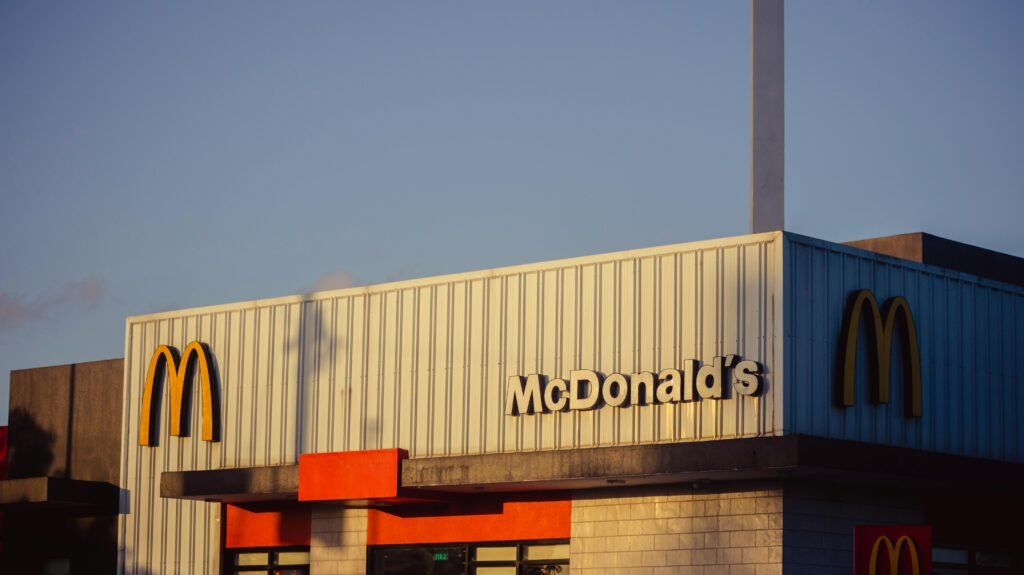Even for a giant like McDonald’s, the past few months have been quite tumultuous.
Prior to the recent E. coli outbreak, the fast-food chain had already found itself caught in various political debates and facing criticism from customers who believed the brand had lost its appeal. Even the “Grimace effect,” associated with the New York Mets’ winning streak and their playful purple mascot, faded during the playoffs, eliminating hopes for a Subway Series.
These issues (excluding the Grimace situation, to be fair) will certainly weigh on McDonald’s as it prepares to report its third-quarter earnings early Tuesday. Investors will be looking for clarity on how the company plans to tackle food safety concerns, especially given its reputation for strict safety standards.
Chris Gaulke, a professor of food and beverage management at Cornell University’s Nolan School of Hotel Administration, remarked to the Associated Press that the rarity of such incidents at McDonald’s speaks to the company’s efforts in managing food safety given the vast amount of food it serves.
The timing of the outbreak poses a significant challenge for McDonald’s, which has been working to regain customers deterred by rising prices. CEO Chris Kempczinski mentioned a year ago that despite the price increases, “the consumer is tolerating it well.” However, that tolerance appears to have waned recently.
At the end of July, McDonald’s announced a 0.7% decline in second-quarter sales in the U.S. compared to the previous year, while some competitors saw gains. This indicated that McDonald’s had become too pricey for lower-income customers and wasn’t enticing enough for those who could afford to eat out. Rival chains like Applebee’s and Chili’s capitalized on this dissatisfaction, encouraging customers to enjoy a meal in a sit-down restaurant for similar prices.
To win back customers over the summer, McDonald’s made significant changes that seemed to be effective. The company extended its popular $5 value meal promotion through the end of the year, which helped increase customer traffic. Additionally, they launched successful limited-time offers, including a partnership with Crocs and a range of nostalgia-themed collector’s cups.
According to RJ Hottovy, an analyst at Placer.ai, McDonald’s had been outperforming its competitors in terms of customer visits over the last few months and was having a strong quarter.
However, the recent E. coli outbreak overshadowed these positive developments. Following the news, McDonald’s stock dropped 7%, prompting executives to launch a media campaign to reassure customers that any contaminated products had been removed and the rest of the menu remained safe.
While it’s still too soon to determine if the outbreak is affecting sales, RJ Hottovy noted that such incidents typically influence consumer behavior, especially given the extensive media coverage. He also pointed out that McDonald’s has been proactive in handling the situation.
The impact will largely depend on whether new cases continue to arise or stabilize. McDonald’s announced on Sunday that it plans to resume sales of Quarter Pounders at all locations next week, following confirmation from the Colorado Department of Agriculture that their beef patties tested negative for E. coli.
As of Friday, U.S. health officials reported that illnesses linked to McDonald’s Quarter Pounders had increased to 75, up from an initial 49, with one death included in that count. These figures could rise further, as it often takes weeks to confirm if an illness is part of an outbreak.
McDonald’s did not respond to request for comments immediately.
The duration and severity of the outbreak now pose uncertainties for analysts evaluating McDonald’s financial outlook. Sara Senatore, a senior restaurant analyst at Bank of America, highlighted that the effects of foodborne illness outbreaks on demand can vary significantly—ranging from long-lasting impacts on consumer perception to negligible effects.
For example, when Chipotle experienced E. coli and norovirus outbreaks in 2015 that affected hundreds, it took over two years and a complete management overhaul, including a new CEO, to restore the brand’s reputation and recover its stock value.
Senatore explained that as long as new cases keep surfacing, the issue remains in the public eye, similar to the challenges Chipotle faced. In contrast, Wendy’s dealt with an E. coli outbreak in August 2022 that was brief and largely unnoticed by analysts.
For McDonald’s, much will depend on how quickly it can move past this news cycle.

